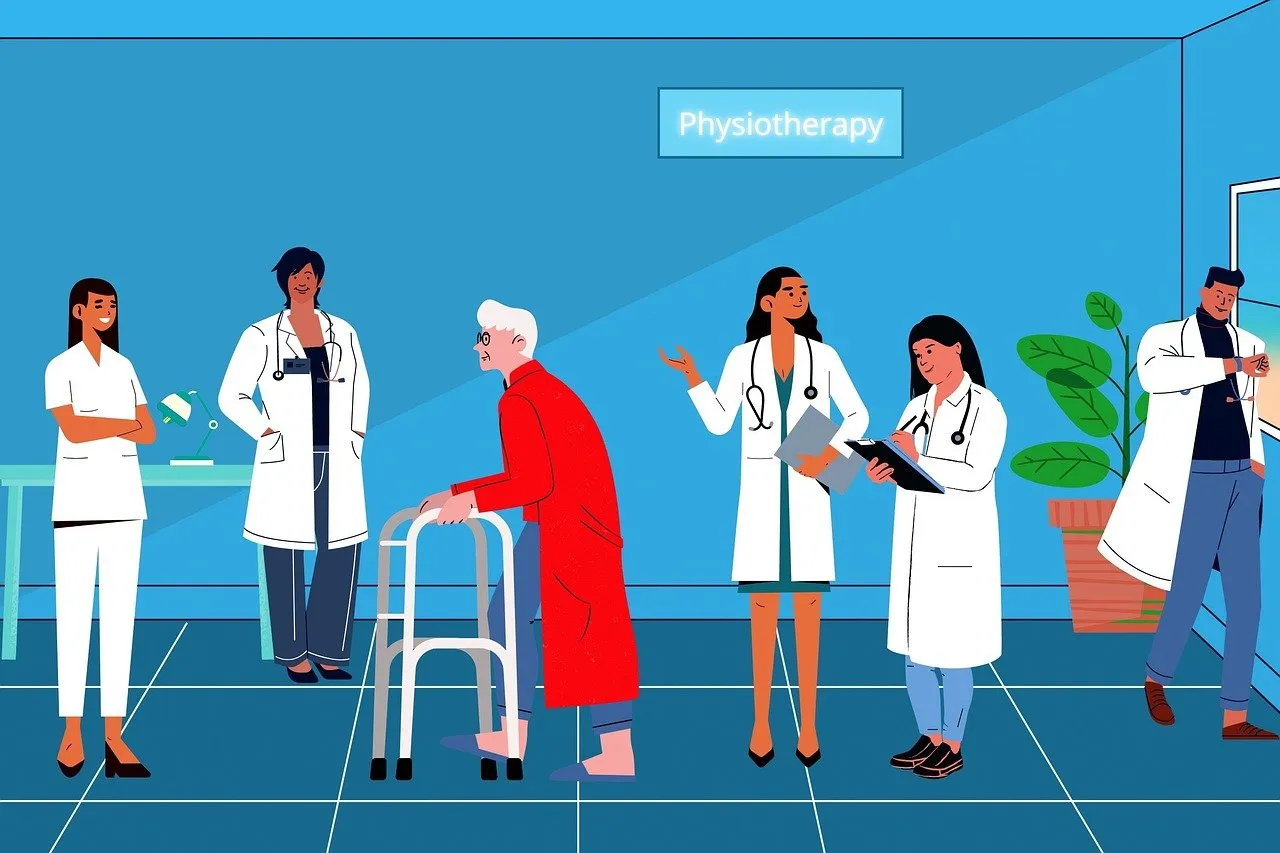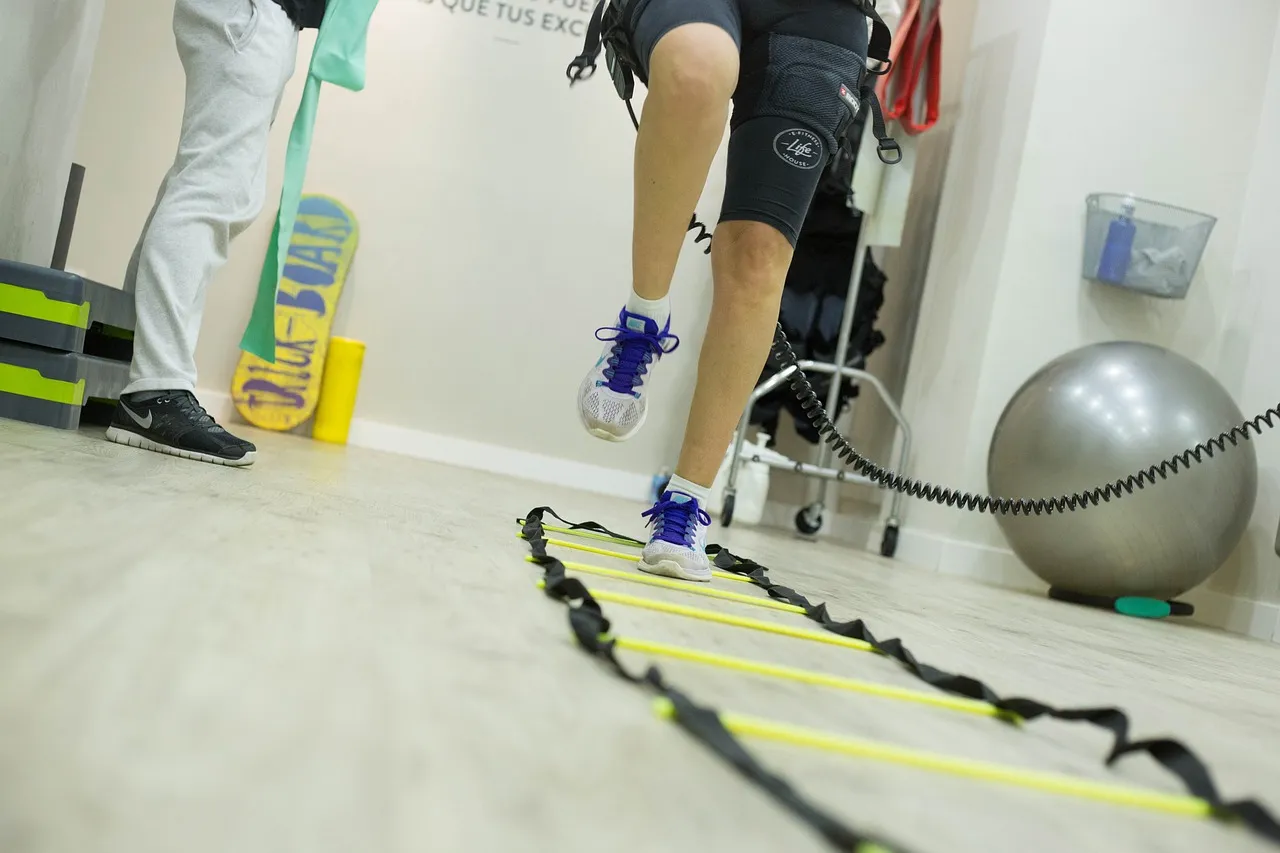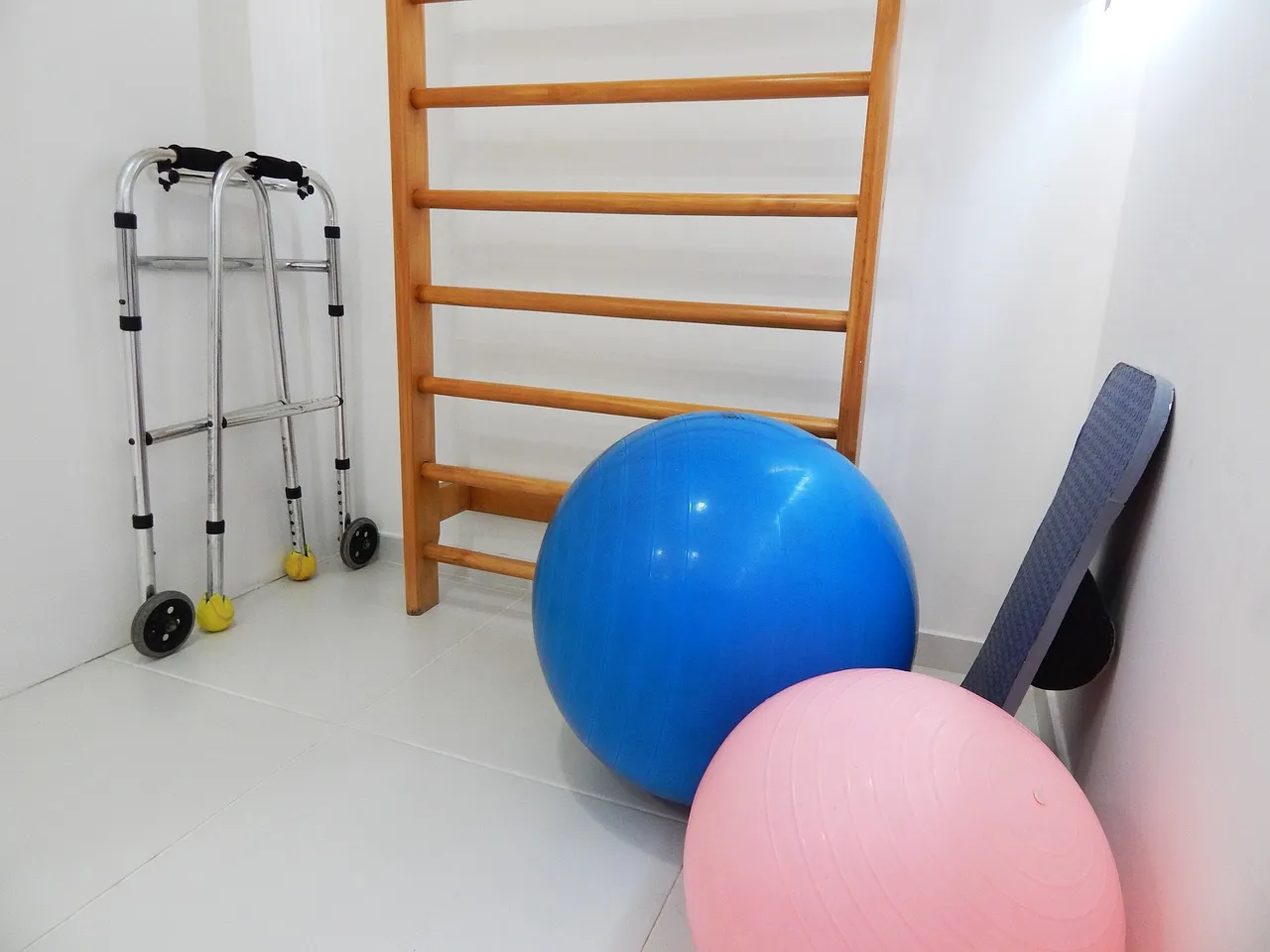As a physiotherapist, I like to think of myself as the locksmith of functional rehabilitation, opening the door to all kinds of potential. You see, physiotherapy is all about fixing musculoskeletal and movement problems. We work with people to help them regain strength and flexibility for activities of daily living.
By using a range of diverse techniques, I can assess and diagnose problems, then create and implement a tailored program to help restore movement and reduce discomfort. In other words, I'm the key that unlocks your ability to move again! Pretty superheroish right? Yes of course !!!
Now from there, I use various modalities such as exercise plans, massage therapy and heat treatments to expand your range of motion, increase strength, boost endurance and help you recover more quickly from injuries or surgeries. Each patient is unique so it's important that the plan reflects their individual needs – something I'm happy to provide!
Ultimately, my job is to empower you with the tools you need to take charge of your own functional rehabilitation journey. With my guidance (and a bit of motivation from you!), I believe we can make some beautiful recovery music together!
Frankly, the idea of rehabilitation may seem daunting, especially considering the amount of effort required to restore lost functions. However, with the right team of experts and professionals, functional rehabilitation can be a lot less complex than it seems.

Image by Moondance from Pixabay
If you're looking to get back on your feet and regain your prior functions, then you'll need to make one key hire: a physiotherapist. This is the person who will be able to help you understand and work towards the optimal healing path for your body. Trust me – physiotherapists are like superheroes! They have all the skills and tools needed to help patients overcome their physical challenges.
The question now is what makes physiotherapists so indispensable in functional rehabilitation?
From diagnoses and treatments to recovery plan simulations and life-long management strategies – physiotherapists are truly essential in helping you unlock your body's full potential!
Functional Rehabilitation this, functional rehabilitation that, what exactly is it?
You see, functional rehabilitation is an umbrella term that refers to a range of therapies and interventions used to promote the recovery and maintenance of physical motion and movement. From a physiotherapist's perspective, it's like helping give people their lives back.
These specialized treatments and methods aren't just about getting patients back on their feet; they're about empowering them with the knowledge, skills, and confidence to move better, live better, and the ‘feel’ better.
Whether it’s helping someone regain independence after injury or illness, or assisting them in recovering from sports-related injuries – physiotherapists provide invaluable insights into unlocking the potential of functional rehabilitation. It’s not just about getting them off their feet; it’s about helping them reclaim their lives. And reclaim we shall.
The Importance of a Comprehensive Assessment Protocol
Being a physiotherapist, I cannot stress enough the importance of having a comprehensive assessment protocol as part of your functional rehabilitation program. It’s not just about creating an exercise program: it’s about determining the patient’s individual needs and creating strategies to help them reach their goals.
From my training and experience, assessments should include:
A detailed aid for physical examination consisting of orthopedic tests, special tests and range of motion measurements
An in-depth analysis of the patient’s posture, strength and flexibility
A review of the patient’s activities of daily living (ADL's)
An assessment of any psychological barriers that may be preventing progress
Evaluating existing lifestyle factors such as work, leisure and wellbeing
The goal is to get a complete understanding of the patient before treatment begins so that an individualized plan can be created to achieve optimal results. With this level of detail taking place during an assessment protocol, physiotherapists are able to get right to the heart of why the condition was present in the first place, helping patients make long-term life changes for success in functional rehabilitation and beyond!
Goals and Expectations of Functional Rehabilitation Programs

Image by Laura Artal from Pixabay
Me doing what I do and have gained experience in ,q I work with clients and their healthcare team to set goals and expectations in our partnering functional rehabilitation program. These goals translate into the activities and exercises prescribed to our clients, as well as their involvement in the therapeutic process. With customized evaluation and feedback, I am able to create meaningful goals tailored specifically to the client’s needs, such as increasing the range of motion, strengthening key muscles and joints, improving balance and posture, and improving overall flexibility and coordination.
By establishing clear objectives at the start of the program, my clients can better understand what they need to do to achieve their goals. I provide detailed instructions about how each exercise should be performed, which eliminates any guesswork for my clients throughout their journey toward success. As a result of this methodical approach, my clients experience fewer setbacks due to incorrect techniques or form. Moreover, this way of working allows us to track progress more accurately over time—giving us a better idea of what's working and what needs extra attention.
Features of an Effective Functional Rehabilitation Program
As a physiotherapist, I understand the key importance of creating an effective and efficient functional rehabilitation program. Rehabilitation is essential in helping individuals to regain their strength, flexibility and balance after a physical injury or illness.
My main objective is to help them achieve complete independence in their functioning and be able to perform activities of daily living without difficulty. To make this happen, here are the features of an effective functional rehabilitation program:
Personalized treatment plans
Each individual has different needs and goals when it comes to physical recovery, so I focus on creating personalized treatment plans that suit their individual strengths, limitations and levels of progress.
Use of evidence-based techniques
I use evidence-based techniques—such as exercises, manual therapy, heat/cold therapy—to help guide my patients through their rehabilitation process more comfortably and efficiently.
Education
Education is also key in keeping my patients informed on how to prevent injuries in the future as well as how to manage them should they arise again. This not only increases their understanding of physical functioning but also helps them take ownership for their health and well-being.
Measurable goals
In each session, I assess my patient’s progress by noting measurable goals that I have set for them and if they are reached or not. This helps me understand what needs to be done differently or if a change in approach is necessary.
Tools and Techniques Used by Physiotherapists to Achieve Functional Goals

Image by aldineiderios from Pixabay
As a physiotherapist, I use a variety of tools and techniques to help my clients achieve their functional rehabilitation goals. These may include manual therapy, therapeutic exercise, and my favorite—kinesiology taping! Each technique offers different benefits that can affect pain perception, postural stability, joint mobility and overall performance.
When it comes to manual therapy, I use various skilled hand movements such as joint and soft tissue mobilization to improve pain and restore mobility. These manipulations are meant to reduce pain levels and improve functionality in the short-term.
Therapeutic exercises are used to improve muscle strength, endurance, balance and flexibility. By focusing on strengthening the targeted areas, clients can become more independent in their day-to-day tasks and even get back into competitive sports.
Finally, Kinesiology taping is one of the more exciting tools a physiotherapist can use! It involves applying specialized tape onto the skin in specific patterns meant to reduce pain levels or improve postural stability—plus it looks super cool! It's amazing what you can do with some tape—you'll never look at it the same way again.
So there you have it!
Physiotherapists can be a great asset to any individual looking to maximize their functional rehabilitation process. From assessments to exercise plans, physiotherapists have expert knowledge and skills to help their clients meet their rehabilitation goals. If your injury isn't quite healed yet, then don't hesitate to book a session with a physiotherapist and start unlocking your potential today!
Thanks for reading, Sayonara 🖐️
References and Resources
1
